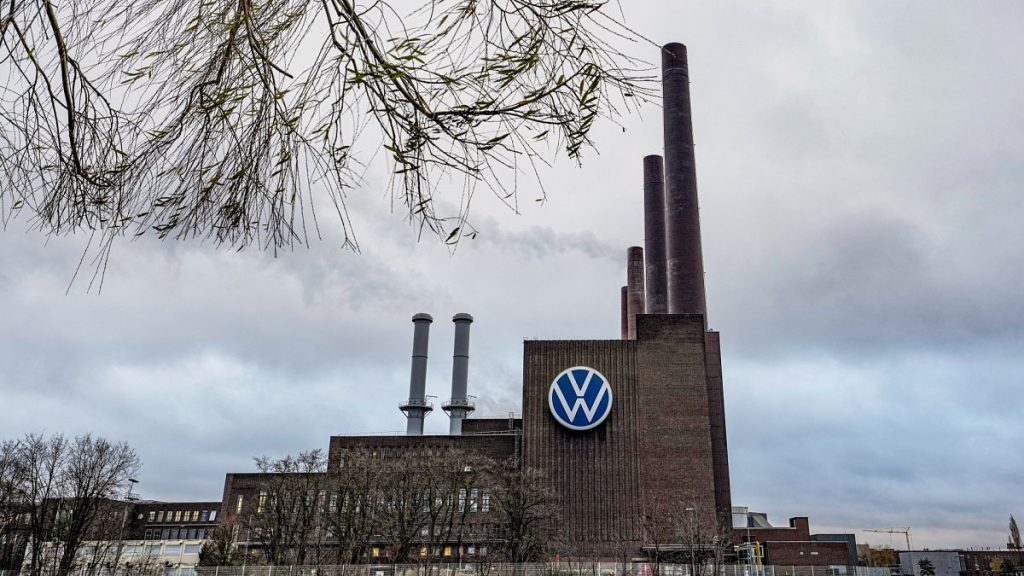Volkswagen, a titan in the automotive industry, finds itself grappling with formidable challenges that necessitate drastic cost-cutting measures. At the heart of this struggle lies a complex interplay of factors, including lagging European sales, escalating labor costs, excessive production capacity, and the rising tide of competition, particularly from Chinese electric vehicle manufacturers. This precarious situation has sparked a tense standoff between Volkswagen’s management, its powerful unions, and its majority stakeholder, the influential Porsche-Piëch family. The family’s stance, favoring factory closures as the primary cost-cutting strategy, has further complicated an already delicate situation.
The Porsche-Piëch family, the controlling shareholder of Porsche SE, which in turn holds a majority stake in the Volkswagen Group, has voiced strong support for shuttering German plants. This position stems from growing concerns about Volkswagen’s long-term global competitiveness and a belief that streamlining operations through factory closures is essential for survival. This stance has placed them at odds with the German unions, who have proposed alternative cost-cutting measures, including reduced dividends and working hours. The family’s unwavering focus on factory closures highlights the depth of their concern regarding Volkswagen’s financial health. They view trimming the business, even through potentially painful closures, as the most effective way to address the company’s challenges and ensure its long-term viability.
The clash between the Porsche-Piëch family and the unions underscores the high stakes involved in navigating Volkswagen’s current predicament. The family’s insistence on factory closures as a prerequisite for maintaining competitiveness has created a significant point of contention. The unions, understandably concerned about job security, have countered with proposals that aim to spread the burden of cost-cutting across various areas, including dividends and working hours. This divergence of perspectives has resulted in protracted negotiations and the looming threat of strikes, further adding to the uncertainty surrounding Volkswagen’s future.
Adding to the complexity of the situation is the Porsche-Piëch family’s veiled threat to significantly reduce its stake in Volkswagen, potentially by as much as 40%. This threat is driven by a lack of clear financial planning data from Volkswagen and the ongoing uncertainty surrounding the company’s future direction. This potential divestment further underscores the gravity of the situation and the pressure on Volkswagen’s management to find a viable solution that satisfies both its stakeholders and its workforce. The family’s significant debt, incurred through investments in other ventures like Porsche AG, amplifies the potential impact of reduced dividends and a diminished Volkswagen stake. This financial vulnerability underscores the family’s urgency in seeking a decisive resolution to Volkswagen’s challenges.
The intensifying competition from Chinese automakers, particularly in the burgeoning electric vehicle market, has further exacerbated Volkswagen’s woes. Chinese manufacturers like BYD, Geely, and SAIC are increasingly making inroads into the European market, offering competitively priced electric vehicles that are putting pressure on established European automakers. While recent EU tariffs on Chinese cars aim to provide some relief to European manufacturers, some Chinese companies are already adapting by shifting their focus to hybrid vehicles, which are currently exempt from these tariffs. This dynamic underscores the rapidly evolving nature of the automotive landscape and the need for European automakers like Volkswagen to adapt quickly to maintain their market share.
The ongoing cost of living crisis in Europe has further dampened consumer demand, making large purchases like cars less appealing. This economic headwind adds another layer of difficulty to Volkswagen’s efforts to revive its European sales. The confluence of these challenges – internal disputes, external competition, and a challenging economic climate – paints a complex and concerning picture for Volkswagen’s immediate future. The company is at a critical juncture, and the decisions made in the coming months will have a profound impact on its long-term prospects. Balancing the interests of its stakeholders, including the powerful Porsche-Piëch family, its workforce represented by the unions, and the demands of a rapidly changing market will require deft maneuvering and a clear vision for the future. The ongoing negotiations and the search for a sustainable solution will undoubtedly shape the trajectory of this automotive giant for years to come.














